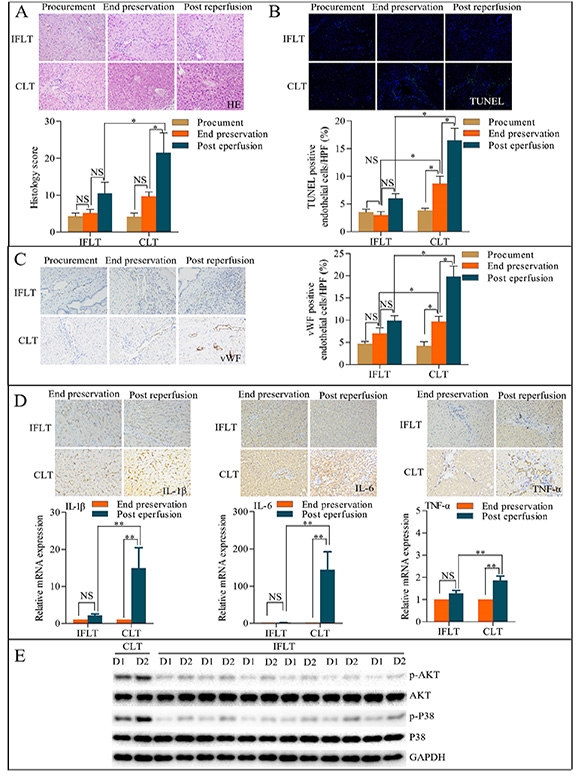The First Series of Ischemia-Free Liver Transplantation in Human
1Organ Transplant Center, The First Affiliated Hospital, Sun Yat-sen University, Guangzhou, Guangdong, China
2Department of Anesthesiology, The First Affiliated Hospital, Sun Yat-sen University, Guangzhou, Guangdong, China.
Meeting: 2018 American Transplant Congress
Abstract number: 197
Keywords: Ischemia, Liver preservation, Liver transplantation, Safety
Session Information
Session Name: Concurrent Session: Ischemia Reperfusion Injury: Time to Change the Paradigm?
Session Type: Concurrent Session
Date: Monday, June 4, 2018
Session Time: 2:30pm-4:00pm
 Presentation Time: 2:30pm-2:42pm
Presentation Time: 2:30pm-2:42pm
Location: Room 6B
BACKGROUND&AIMS: Ischemia and reperfusion injury (IRI) is known as an inevitable event leading to early and late graft failure. We have performed the first case of ischemia-free liver transplantation (IFLT) on July 23rd, 2017. Herein we present the first series of IFLT.
METHODS: In this series, 6 liver grafts were procured, preserved and implanted under continuous normothermic machine perfusion (NMP) so that ischemia injury of the grafts was completely avoided. Graft viability was assessed with references to biochemical changes in the perfusate and bile production. The IFLT cases were matched 1:3 to conventional liver transplantation (CLT) cases. The IRI injury and early transplant outcomes were compared between two groups.
RESULTS: Stable perfusion flow, low lactate and liver enzyme levels, and continuous bile production were observed during NMP in IFLT. The 30-day graft survival was comparable (100% in IFLT versus 94.4% in CLT, p=0.750). The incidence of early allograft dysfunction (EAD) was significantly lower in IFLT than in CLT group (0% versus 55.6%, p=0.022). The peak AST, ALT and total bilirubin within the first 7 days were significantly lower in IFLT group. The histological study revealed minimal hepatocyte, biliary epithelium and vascular endothelium injury during preservation and post-transplantation in IFLT. The inflammatory cytokine (IL-1b, IL-6 and TNF-a) levels were much lower in IFLT.  The key pathways involved in IRI were not activated after graft revascularization. The transcriptomic profile-microarrays revealed a striking increase in proliferation-associated, anti-inflammatory and regenerative genes in IFLT when compared to CLT.
The key pathways involved in IRI were not activated after graft revascularization. The transcriptomic profile-microarrays revealed a striking increase in proliferation-associated, anti-inflammatory and regenerative genes in IFLT when compared to CLT.
CONCLUSIONS: The results of the first series demonstrate the safety, feasibility, and superiority of IFLT. This innovation provides a potential strategy to maximize organ utilization and optimize transplant outcomes.
CITATION INFORMATION: He X., Guo Z., Huang S., Zhao Q., Tang Y., Zhang Z., Zhu Z., Ju W., Yang L., Chen G. The First Series of Ischemia-Free Liver Transplantation in Human Am J Transplant. 2017;17 (suppl 3).
To cite this abstract in AMA style:
He X, Guo Z, Huang S, Zhao Q, Tang Y, Zhang Z, Zhu Z, Ju W, Yang L, Chen G. The First Series of Ischemia-Free Liver Transplantation in Human [abstract]. https://atcmeetingabstracts.com/abstract/the-first-series-of-ischemia-free-liver-transplantation-in-human/. Accessed July 18, 2025.« Back to 2018 American Transplant Congress
